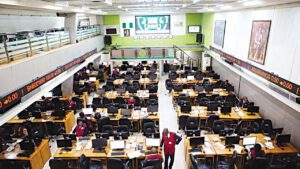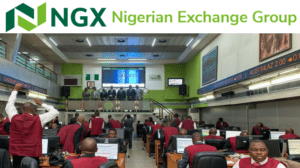
Jaiz Bank to restructure to a Holding Company in an ‘aggressive growth strategy’
Nigeria’s first and largest fully-fledged non-interest or Islamic lender, Jaiz Bank Plc, has gotten shareholders’ approval to raise N150 billion and restructure into a Holding Company in order to achieve the bank’s short-term and long-term growth strategy.
The proposed structure will afford the bank the opportunity to penetrate into other related areas like Pension, Asset Management etc. The approval was secured on August 16, 2022, at the Bank’s 10th Annual General Meeting in Abuja.
Islamic, non-interest banking is a model of financing of partnering and sharing risks and returns, irrespective of partners’ faith/religion, tribe, etc. Over the past 10 years, the bank has grown from 3 branches to over 45 branches nationwide; growing its balance sheet from N12 billion to over N300 billion as at June 30, 2022. Over these years, the Bank has consistently delivered remarkable results to reaffirm this continuous growth trajectory as one of the most profitable banks in Nigeria.
In 2021FY for instance, gross income grew by 31.76 per cent to N25.84 billion from N19.61 billion in 2020FY. Similarly, total assets grew by 19.55 per cent to N279.28 billion from N233.60 billion in 2020, while shareholders’ funds for the period grew by 36.20 per cent to N24.31 billion compared to N17.85 billion in 2020.
In 2022FY, the released H1 2022 financial statements of the non-interest bank show that gross income inched up by 23 per cent to N14.335 billion from N11.652 billion recorded 12 months ago.
Supported by the growth in other operating income, fees and commission receipts Jaiz Bank’s total income jumped by 17.8 per cent to N10.44 billion from N8.86 billion in H1 2021. On the strength of the strong top line, the bank’s profit after tax grew by 26.82 per cent to N2.535 billion from N1.999 billion.
Driving the Bank’s strong bottom line over the years is the healthy income from financing contracts. In H1 2022, financing contracts income stood at N10.087 billion; 40.6 per cent above N7.175 billion reported in the comparable period last year. Driving the financing contract income is income from Murabaha transactions, which accounted for 66.2 per cent of the N10.087 billion financing contract income.
The outing pushed earnings per share higher by 8.25 per cent, to 7.34 kobo from 6.78 kobo in H1 2021 and expanded the balance sheet further; growing by 12.11 per cent to N313.101 billion as at June 30, 2022, from N279.275 billion at year-end 2021.
However, shareholders’ fund dipped moderately to N24.235 billion due to a decline in other reserves from N24.305 billion six months ago.
Reacting to the earnings beat in the first six months result, equities investors took a higher position which saw the share price repricing.
As a result, Jaiz Bank’s stock market valuation inched higher by 20.27 per cent to about N30.74 billion on Friday, August 19, 2022. The bank has a better YtD gain. It started the year with a share price of N0.56 and thus has since gained 58.9 per cent, ranking it 16th on the NGX in terms of year-to-date performance.
Earlier, in July 2022, Fitch Ratings had affirmed Jaiz Bank Plc.’s Long-Term Issuer Default Rating (IDR) at ‘B-‘with a stable outlook and Viability Rating (VR) at ‘b-.’
The global rating firm also upgraded the Bank’s National Long-Term Rating to ‘BBB+ (nga)’ from ‘BBB (nga)’. The rating agency explained that Jaiz Bank’s IDRs are driven by its standalone creditworthiness, as expressed by its VR of ‘b-,’ which reflects the concentration of the bank’s operations within Nigeria’s challenging operating environment, small but evolving franchise.
Similarly, the bank was awarded the most-improved Islamic Bank in the world by the United Kingdom-based GIFA for the second year in a row.
Fitch’s rating underscores Jaiz Bank’s high credit concentrations, aggressive financing and balance sheet growth that are expected to continue over the medium term and financing quality weaknesses. It also reflects healthy profitability, reasonable capitalisation and comfortable liquidity coverage.
Following its strong performance over the years, the bank believes and is optimistic that it will continue to make progress in the coming years.
“The future looks bright; the macroeconomic indices are projected to have an uptick as most of the economies have rebounded except some few.
“As for the bank, we will remain resolute in providing our customers better services in an efficient and delightful manner. Our digital roadmap will be judiciously executed in order to simplify our processes and engender employees’ productivity while optimizing shareholders’ return,” the Chairman said.
The bank’s expansion strategy is coming at the right time, especially with fresh moves by competing banks to increase their market share as rival peer TAJ Bank has indicated interest in a national banking licence, Lotus and Sterling Banks are developing their non-interest banking offerings.
More so, the bank’s market share remains small relative to the wider banking system, representing just 0.5% of banking system assets in 2021.
There is a need for expansion, but the method of funding is paramount. According to Fitch, “A downgrade of the VR and Long-Term IDR would result from the impaired loans ratio exceeding 15% and aggressive growth that led to weakened profitability and significant erosion of capital buffers to levels close to the bank’s 10% regulatory requirement,” while, “An upgrade of Jaiz Bank’s VR and Long-Term IDR would require a sovereign upgrade and improvement in operating environment conditions, a strengthening of the bank’s franchise, as indicated by increased market shares, combined with a moderation of financing growth and impaired financing generation.”
The Bank has proposed a mixture of Equity and issuance of Sukuk to fund its business expansion. It is pertinent that a comparative cost-benefit analysis is done. The bank’s total equity as of June 30, 2022, is low compared to the total asset, which is just 7.74%.



